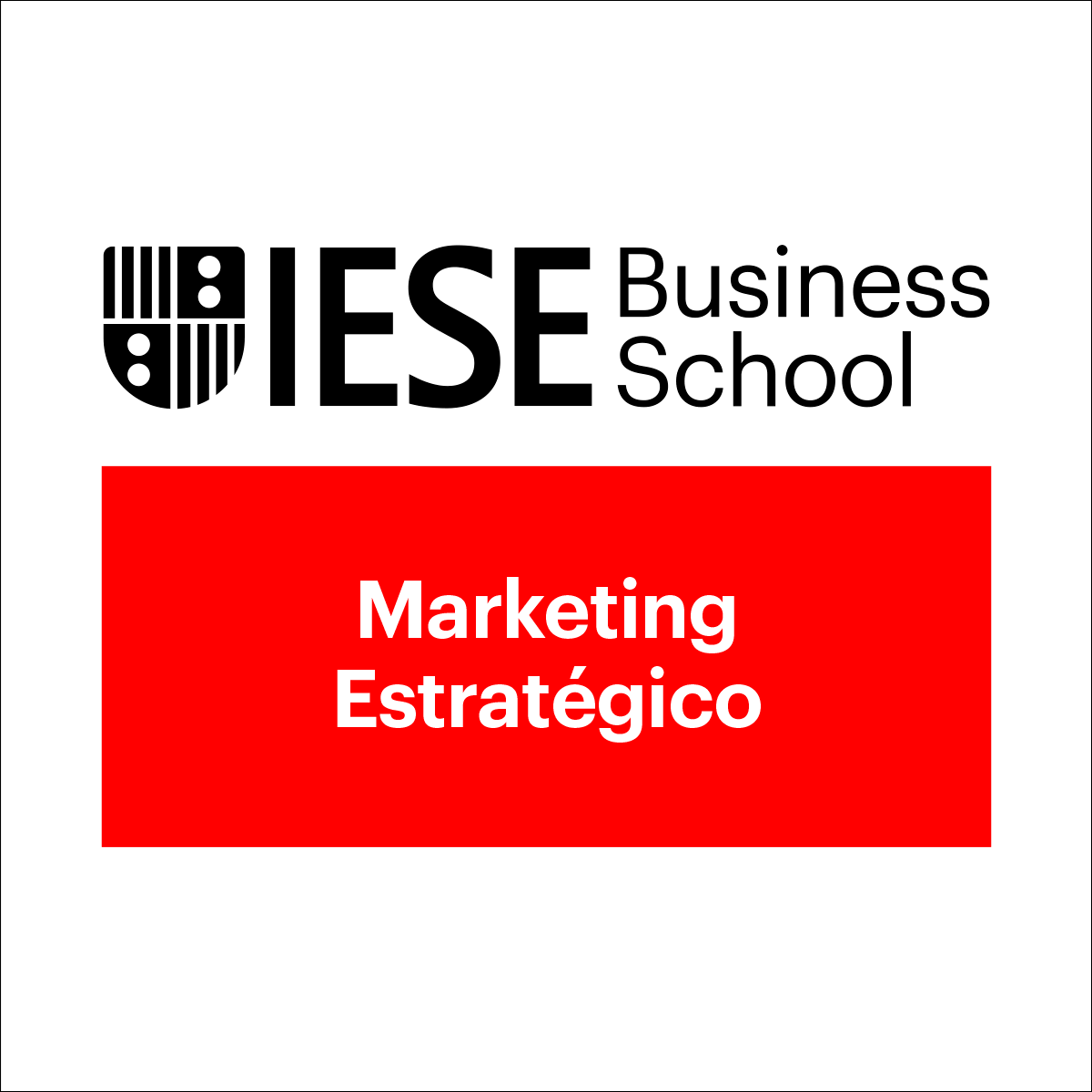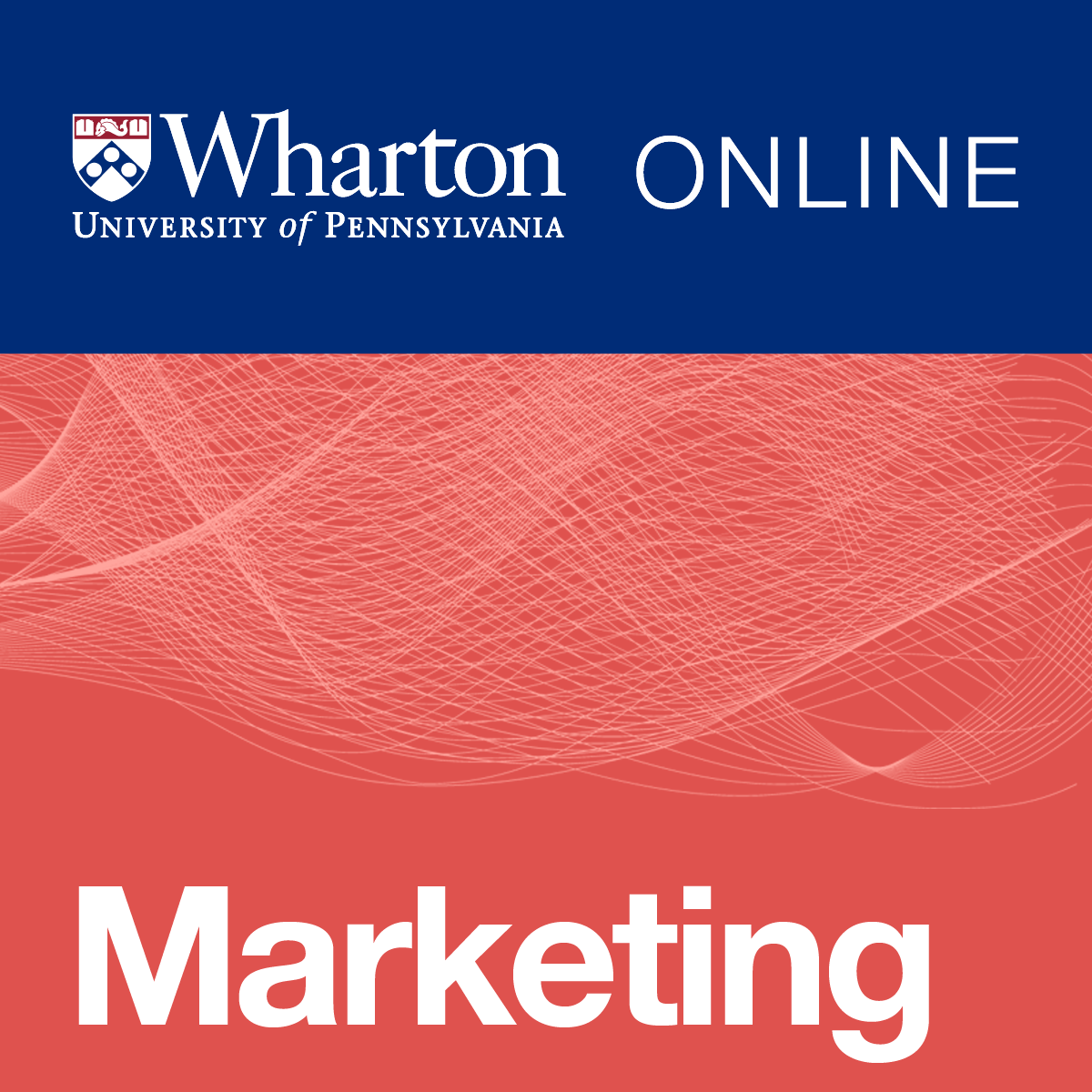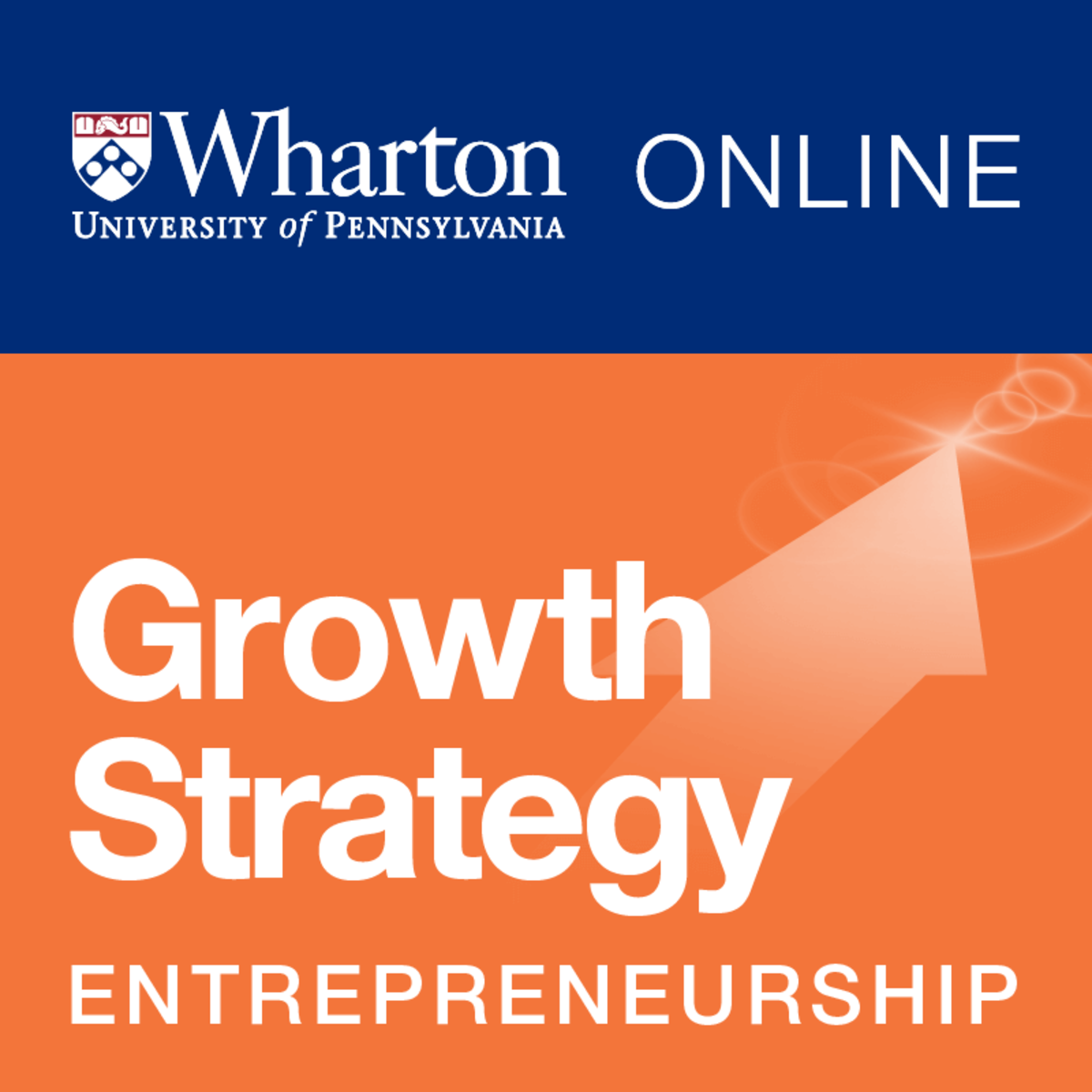Marketing Consultant
Marketing Consultant: A Career Exploration
A Marketing Consultant acts as an external advisor, guiding businesses on how to best reach their target audiences, enhance brand visibility, and ultimately, drive growth and profitability. They bring an objective perspective, specialized expertise, and strategic thinking to help organizations navigate the complex and ever-evolving landscape of marketing. Consultants might work independently as freelancers or as part of consulting firms, serving clients across various industries.
Working in this field involves a dynamic mix of analytical rigor and creative problem-solving. You might find yourself delving into market data one day and brainstorming innovative campaign concepts the next. The opportunity to work with diverse clients and tackle unique business challenges keeps the role engaging and intellectually stimulating for those who thrive on variety and continuous learning.
Introduction to Marketing Consulting
Defining the Role and Scope
Marketing Consultants are strategic partners hired by organizations to improve their marketing efforts. Their scope can be broad, encompassing everything from high-level strategy development to the tactical execution of specific campaigns. They analyze a company's current marketing activities, identify areas for improvement, and develop actionable plans to achieve specific business goals, such as increasing market share, launching new products, or improving customer retention.
The work often begins with a deep dive into the client's business, market position, competitors, and target customers. Consultants use research and data analysis to understand the challenges and opportunities. Based on these findings, they craft tailored strategies which might involve recommending changes to branding, messaging, channel mix, pricing, or customer experience.
Implementation support can also be part of the consultant's role, though this varies. Some consultants focus purely on strategy and recommendations, while others assist with executing the plan, managing campaigns, or training the client's internal team. The ultimate goal is always to deliver measurable results and a strong return on investment for the client.
Industries and Organizations Hiring Consultants
Virtually any organization that needs to reach customers or stakeholders can benefit from marketing consulting. Small and medium-sized businesses (SMBs) often lack dedicated senior marketing expertise and hire consultants to fill this gap. Startups frequently engage consultants to develop go-to-market strategies and establish their initial brand presence.
Large corporations also utilize marketing consultants, often for specialized projects, objective assessments, or access to niche expertise they may not have in-house. This could involve launching into new international markets, navigating digital transformation, or optimizing multi-million dollar advertising budgets. Specific industries like technology, healthcare, finance, retail, and non-profits commonly employ marketing consultants.
Consulting firms, ranging from large multinational players like McKinsey, Bain, and BCG (which often have dedicated marketing practices) to specialized marketing agencies and boutique firms, are major employers. Furthermore, a significant number of marketing consultants operate independently as freelancers, building their own client base.
Distinguishing from Related Marketing Roles
While related, a Marketing Consultant differs from an in-house Marketing Manager. Managers are employees responsible for the day-to-day execution and management of a company's marketing activities. Consultants are external advisors offering strategic guidance, often on a project basis, bringing an outside perspective and specialized knowledge.
Similarly, consultants differ from advertising specialists or agencies who primarily focus on creating and placing advertisements. While a consultant might recommend specific advertising strategies, their scope is typically broader, encompassing the entire marketing mix (product, price, place, promotion) and overall business strategy.
A Brand Manager, another related role, focuses specifically on building and maintaining the reputation and identity of a particular brand or product line within a company. A consultant might advise on brand strategy, but their work often covers a wider range of marketing challenges beyond a single brand.
Key Responsibilities of a Marketing Consultant
Market Research and Competitive Analysis
A cornerstone of marketing consulting is thorough market research. Consultants must understand the market landscape, including industry trends, customer demographics, psychographics, and purchasing behaviors. This involves gathering and analyzing data from various sources like market reports, surveys, focus groups, customer interviews, and social media listening.
Competitive analysis is equally crucial. Consultants identify key competitors, analyze their strategies, strengths, weaknesses, market positioning, and customer perception. This helps clients understand their competitive environment and identify opportunities for product differentiation and strategic advantage.
The insights gained from research and analysis form the foundation for strategic recommendations. Consultants must be adept at synthesizing complex information into clear, actionable insights that inform marketing decisions and strategy development.
These foundational courses explore market research and understanding customer needs, crucial first steps in consulting.
Campaign Strategy Development
Based on research and analysis, consultants develop comprehensive marketing strategies and campaign plans. This involves defining clear objectives (e.g., increase brand awareness by X%, generate Y leads, achieve Z sales growth), identifying target audience segments, and crafting compelling value propositions and messaging.
Consultants determine the optimal mix of marketing channels – digital (SEO, SEM, social media, email, content marketing) and traditional (print, broadcast, direct mail, events) – to reach the target audience effectively and efficiently. They outline specific tactics, timelines, and budgets for campaign execution.
The strategy must align with the client's overall business goals and resources. Creativity plays a role here, but it's grounded in data and strategic thinking to ensure campaigns are not just innovative but also effective in driving desired outcomes.
Developing effective marketing plans and strategies is central to the consultant's role. These courses cover strategy formulation and planning.
Client Relationship Management
Building and maintaining strong client relationships is paramount in consulting. Consultants must effectively communicate their findings, strategies, and recommendations to clients, often presenting to senior executives. This requires excellent presentation, persuasion, and interpersonal skills.
Active listening is key to understanding the client's needs, concerns, and internal dynamics. Consultants act as trusted advisors, requiring them to build rapport and credibility. Managing expectations, providing regular updates, and addressing challenges proactively are essential for client satisfaction and project success.
Often, consultants need to navigate complex organizational structures and work collaboratively with various internal stakeholders at the client company. Diplomacy and the ability to influence without direct authority are valuable assets in ensuring strategies are adopted and implemented successfully.
Performance Measurement and ROI Optimization
Marketing consultants are accountable for delivering results. A critical responsibility is defining key performance indicators (KPIs) to measure the success of marketing initiatives. This could include metrics like website traffic, conversion rates, lead quality, customer acquisition cost (CAC), customer lifetime value (CLV), and ultimately, return on investment (ROI).
Consultants set up tracking mechanisms, often using tools like Google Analytics, CRM systems, and marketing automation platforms, to monitor campaign performance in real-time. They analyze the data to understand what's working, what's not, and why.
Based on performance data, consultants make recommendations for optimizing campaigns – adjusting targeting, messaging, channel spend, or tactics – to improve results and maximize ROI. Reporting on performance and demonstrating the value generated by marketing investments is a crucial part of the role.
Understanding how to measure marketing effectiveness and analyze data is critical for demonstrating value. These courses focus on analytics and ROI.
Essential Skills for Marketing Consultants
Data Analysis and Interpretation
Modern marketing is heavily data-driven, and consultants must be proficient in analyzing data to extract meaningful insights. This includes familiarity with web analytics platforms (Google Analytics), CRM data, social media analytics, survey results, and sales data. The ability to interpret complex datasets and translate them into strategic recommendations is vital.
Consultants need to identify patterns, trends, and correlations within the data to understand customer behavior, campaign effectiveness, and market dynamics. Skills in data visualization are also beneficial for communicating findings clearly to clients who may not be data experts themselves.
Proficiency with spreadsheet software like Excel or Google Sheets for data manipulation and analysis is often required. Familiarity with more advanced statistical methods or tools can be an advantage, especially for roles involving complex market modeling or attribution analysis.
These courses provide skills in marketing analytics, crucial for any data-driven consultant.
Understanding how to leverage data is key in marketing. This book offers insights into competitive strategy based on analysis.
Creative Problem-Solving
While analytical skills are essential, marketing consulting also demands creativity. Consultants are often brought in to solve complex business challenges or find innovative ways to reach customers and differentiate from competitors. This requires thinking outside the box and developing novel solutions.
Creative problem-solving involves identifying the root cause of a problem, brainstorming a wide range of potential solutions, evaluating their feasibility and potential impact, and selecting the most promising approach. It's about finding new angles, fresh perspectives, and unconventional tactics.
This creativity extends to developing campaign concepts, crafting unique brand messaging, and designing engaging customer experiences. Consultants need to balance innovative ideas with practical considerations like budget, resources, and client capabilities.
These resources explore innovation and strategic thinking, core components of creative problem-solving in marketing.
Communication and Presentation Skills
Exceptional communication skills are non-negotiable for marketing consultants. They must be able to articulate complex ideas clearly and concisely, both verbally and in writing. This includes writing persuasive proposals, insightful reports, and clear strategic documents.
Presentation skills are equally critical. Consultants frequently present findings and recommendations to client stakeholders, including senior leadership. They need to be confident, engaging, and capable of tailoring their communication style to different audiences. Visual communication skills, such as creating effective charts and slides, enhance presentations.
Strong interpersonal skills are needed for building rapport with clients, conducting interviews, facilitating workshops, and managing relationships. Active listening and the ability to ask insightful questions are vital for understanding client needs and gathering necessary information.
These resources cover aspects of advertising and communication, which are central to a consultant's ability to convey value and strategy.
Adaptability and Continuous Learning
The marketing landscape changes rapidly due to technological advancements, evolving consumer behavior, and new platform algorithms. Marketing consultants must be highly adaptable and committed to continuous learning to stay current and provide relevant advice.
This involves keeping abreast of industry trends, new marketing technologies (MarTech), emerging channels, and changes in data privacy regulations. Consultants need to be curious, proactive learners, regularly reading industry publications, attending webinars or conferences, and experimenting with new tools and techniques.
Adaptability also means being able to pivot strategies quickly based on campaign performance data or shifts in the market environment. Flexibility in thinking and approach is essential for navigating uncertainty and helping clients respond effectively to change.
Staying updated with the latest trends is crucial. This book explores emerging patterns that can impact marketing strategies.
These courses touch upon the evolving digital landscape and the need for adaptable strategies.
Formal Education Pathways
Relevant Undergraduate Degrees
A bachelor's degree is typically the minimum educational requirement for entry-level positions that can lead to a marketing consulting career. Degrees in Business Administration with a concentration in Marketing are common choices, providing a broad foundation in business principles alongside marketing concepts.
Degrees in Communications are also highly relevant, emphasizing skills in messaging, public relations, and audience analysis, which are crucial for consultants. Economics degrees can provide strong analytical grounding, while Psychology or Sociology degrees offer insights into consumer behavior.
While a specific degree isn't always mandatory, coursework covering marketing principles, market research, statistics, consumer behavior, business strategy, and communications provides a strong base. Relevant internships or extracurricular activities demonstrating practical marketing experience significantly enhance a candidate's profile.
These introductory courses cover fundamental marketing principles often taught in undergraduate programs.
MBA and Specialized Graduate Programs
For those aiming for roles in top-tier consulting firms or seeking to accelerate their career progression, a Master of Business Administration (MBA) is often highly advantageous, particularly from reputable business schools. MBA programs deepen strategic thinking, financial acumen, and leadership skills, while offering opportunities for specialization in marketing.
Specialized Master's degrees in Marketing, Marketing Analytics, Digital Marketing, or related fields are also valuable pathways. These programs offer more focused, in-depth knowledge in specific areas of marketing, equipping graduates with advanced skills sought after by employers and clients.
Graduate programs often include case studies, group projects, and networking opportunities that simulate real-world consulting scenarios and help build professional connections. Choosing a program with a strong reputation, relevant curriculum, and robust career services can significantly impact career trajectory.
This comprehensive book is often used in graduate-level marketing courses.
These courses offer MBA-level insights into marketing and business strategy.
Certifications and Specializations
Professional certifications can enhance a consultant's credibility and demonstrate expertise in specific domains, especially in rapidly evolving areas like digital marketing. Certifications in areas like Google Ads, Google Analytics, social media marketing platforms (e.g., Meta Blueprint), or marketing automation software (HubSpot) are widely recognized.
Broader digital marketing certifications offered by organizations like the Digital Marketing Institute (DMI) or the American Marketing Association (AMA) can also be valuable. Certifications signal a commitment to professional development and mastery of current tools and techniques.
While certifications don't replace experience or formal education, they can be particularly useful for career pivoters or those wanting to specialize. They provide structured learning and validation of specific skill sets that are in demand in the consulting market.
These courses cover specialized areas like digital channels and e-commerce, relevant for certification paths.
Research Opportunities in Consumer Behavior
For those interested in the deeper psychological and sociological aspects of marketing, pursuing research opportunities in consumer behavior can be a valuable path, particularly within academia or specialized market research firms. This often involves advanced graduate studies (Master's or PhD).
Researchers in this field investigate how consumers make decisions, perceive brands, respond to advertising, and adopt new products. Methodologies can include experiments, surveys, ethnographic studies, and data modeling. Findings from consumer behavior research often inform marketing strategies and public policy.
While a direct path to mainstream marketing consulting might be less common from pure research, the deep analytical skills and understanding of consumer psychology gained are highly valuable. Some consultants specialize specifically in applying behavioral science principles to marketing challenges.
These courses and books delve into consumer decision-making and the psychology behind marketing effectiveness.
Online Learning and Skill Development
Supplementing Formal Education and Building Niche Skills
Online courses offer incredible flexibility and accessibility for supplementing formal education or acquiring specialized marketing skills. Whether you're a university student wanting deeper knowledge in Search Engine Optimization (SEO) or a professional needing to master marketing automation platforms, online learning provides targeted pathways.
Platforms like OpenCourser aggregate thousands of courses, allowing learners to browse marketing topics and find specific courses on everything from email marketing and content creation to advanced analytics and programmatic advertising. This enables learners to fill knowledge gaps quickly and affordably, staying current with the latest tools and techniques essential for consulting.
Building niche expertise through online courses can significantly enhance a consultant's value proposition. Specializing in areas like SaaS marketing, healthcare marketing, B2B lead generation, or e-commerce optimization can open doors to specific client segments and higher billing rates. Online learning makes acquiring these specialized skills more achievable than ever.
These courses cover various digital marketing specializations available through online learning.
Building Portfolios Through Independent Projects
For aspiring consultants, especially those transitioning careers or lacking direct experience, demonstrating skills is crucial. Online courses often include hands-on projects, case studies, or simulations that allow learners to apply concepts and build tangible evidence of their capabilities. Completing these projects provides valuable additions to a professional portfolio.
Beyond coursework, learners can undertake independent projects to showcase their skills. This could involve creating a comprehensive marketing plan for a hypothetical business, conducting a competitive analysis for a chosen industry, developing a sample social media campaign, or even offering pro-bono consulting work for a small non-profit organization.
Documenting these projects thoroughly – outlining the challenge, methodology, analysis, recommendations, and potential outcomes – creates compelling portfolio pieces. Sharing these projects on platforms like LinkedIn or a personal website can effectively demonstrate practical skills and initiative to potential clients or employers. OpenCourser's "Activities" section on course pages often suggests relevant project ideas.
Many online courses are project-based, providing practical experience for your portfolio.
Validating Self-Taught Expertise for Client Acquisition
In the consulting world, demonstrated results and expertise often matter more than traditional credentials alone. Online learning, combined with practical application through projects or freelance work, allows individuals to build and validate expertise outside formal degree programs. This is particularly relevant for career pivoters.
Successfully completing reputable online courses and earning certificates can signal commitment and foundational knowledge. However, true validation comes from applying that knowledge effectively. Building a strong portfolio, gathering client testimonials (even from small or pro-bono projects), and developing case studies showcasing measurable results are powerful ways to validate self-taught skills.
Networking within the industry, contributing to online discussions, publishing insightful content (e.g., blog posts, articles on LinkedIn), and potentially obtaining industry-recognized certifications further solidify credibility. Ultimately, clients hire consultants for their ability to solve problems and deliver value, regardless of how the expertise was acquired. OpenCourser's Learner's Guide offers tips on leveraging online course certificates effectively.
These courses can help build foundational or specialized knowledge for those charting their own learning path.
Navigating a career pivot requires strategy. These books offer insights applicable to building a consulting practice or any new venture.
Career Progression in Marketing Consulting
Entry Points and Early Roles
Common entry points into marketing consulting include roles like Marketing Analyst, Junior Consultant, or Marketing Coordinator within a consulting firm or agency. These positions typically involve supporting senior consultants with research, data analysis, presentation preparation, and project coordination.
Another pathway is starting in an in-house marketing role at a company (e.g., Marketing Specialist, Digital Marketer) and gaining practical experience across different marketing functions. After building a solid foundation and a track record of results, individuals can transition into consulting roles, bringing valuable industry experience.
Internships during undergraduate or graduate studies are highly beneficial for securing entry-level positions. Strong analytical skills, communication abilities, and a demonstrated passion for marketing are key attributes employers look for in entry-level candidates.
These courses cover foundational marketing skills relevant for entry-level roles.
Transitioning from Corporate Marketing to Consulting
Many successful marketing consultants transition from corporate marketing roles. This background provides deep industry knowledge, practical experience in execution, and an understanding of internal corporate dynamics, which clients value highly. Making the switch requires reframing experience to highlight strategic thinking, problem-solving, and measurable impact.
Networking is crucial for this transition. Connecting with current consultants, attending industry events, and potentially starting with smaller freelance projects can help build a bridge. Tailoring your resume and LinkedIn profile to emphasize consulting-relevant skills (analysis, strategy, client management) is important.
Consider what unique value proposition you bring based on your corporate experience. Perhaps you have deep expertise in a specific industry (e.g., fintech, CPG) or a particular marketing function (e.g., product launches, customer retention). Highlighting this specialization can make you more attractive to potential clients or consulting firms.
Specialization Paths
As consultants gain experience, many choose to specialize. Specialization allows consultants to develop deep expertise, differentiate themselves in the market, and often command higher fees. Common areas of specialization include digital marketing (SEO, SEM, social media), content marketing, marketing analytics, CRM and marketing automation, B2B marketing, or specific industry verticals.
Industry specializations might focus on sectors like Software-as-a-Service (SaaS), healthcare, financial services, e-commerce, non-profits, or education. Consultants develop an intimate understanding of the unique challenges, regulations, and customer behaviors within that industry.
Choosing a specialization often depends on personal interest, market demand, and prior experience. Continuous learning through online courses, certifications, and staying current with industry trends is essential for maintaining expertise within a chosen specialization.
These courses touch upon specialized areas like SaaS, branding, and growth strategies.
Leadership Roles and Advancement
Career progression in consulting firms typically follows a path from Analyst/Junior Consultant to Consultant, Senior Consultant, Manager, Director, and potentially Partner. Advancement requires demonstrating strong analytical and problem-solving skills, excellent client management abilities, leadership potential, and a track record of delivering impactful results.
Senior roles involve leading larger projects, managing teams of consultants, developing client relationships, and contributing to business development (selling consulting services). Partners typically have significant business development responsibilities and play a key role in the firm's strategic direction.
Experienced consultants may also move into senior leadership roles within corporations, such as Director of Marketing, Vice President of Marketing, or Chief Marketing Officer (CMO). Others may start their own independent consulting practices or boutique agencies, leveraging their expertise and network to build their own businesses.
These books focus on strategic leadership and differentiation, relevant for advancing in consulting.
Marketing Consultant Industry Trends
Impact of AI on Campaign Optimization
Artificial Intelligence (AI) is rapidly transforming marketing consulting. AI tools can analyze vast datasets far faster than humans, uncovering subtle patterns in consumer behavior and predicting campaign outcomes with greater accuracy. Consultants leverage AI for tasks like audience segmentation, predictive analytics for lead scoring, and optimizing ad spend across channels in real-time.
Generative AI tools are also impacting content creation, helping consultants draft email copy, social media posts, and even initial creative concepts more efficiently. However, the consultant's role remains crucial in guiding AI, interpreting results, ensuring ethical use, and adding the strategic and creative oversight that AI currently lacks. Consultants need to become adept at using AI tools to enhance their capabilities, not replace them.
Major consulting firms like McKinsey highlight the increasing adoption of AI, particularly generative AI, across business functions, including marketing and sales, indicating its growing importance for consultants.
These courses explore using AI in marketing contexts.
Shift Toward Omnichannel Strategies
Consumers now interact with brands across numerous touchpoints – websites, social media, mobile apps, physical stores, customer service calls. This has driven a significant shift towards omnichannel marketing strategies, which aim to provide a seamless and consistent customer experience across all channels.
Marketing consultants play a key role in helping clients design and implement these complex strategies. This involves integrating data from various sources to create a unified customer view, mapping customer journeys across channels, and ensuring consistent messaging and branding throughout.
The goal is to move beyond siloed channel management towards a holistic approach where each interaction builds upon the last, regardless of the channel used. Consultants need expertise in data integration, customer journey mapping, marketing technology stacks, and cross-functional collaboration to successfully implement omnichannel initiatives.
Global Demand Variations and Regional Nuances
The demand for marketing consulting services can vary significantly by region, influenced by economic conditions, technological adoption rates, and market maturity. Developed markets like North America and Western Europe often have high demand for specialized digital marketing and MarTech consulting.
Emerging markets may present significant growth opportunities as businesses seek expertise to navigate digital transformation and reach growing consumer bases. However, consultants working internationally must understand and adapt to cultural nuances, local regulations, and different consumer behaviors in each market.
Globalization requires consultants to develop cross-cultural communication skills and potentially language proficiency. Strategies that work in one region may need significant adaptation to be effective elsewhere. Understanding these regional differences is crucial for consultants advising clients on international expansion or managing global campaigns.
These courses address the complexities of marketing in a global context.
Sustainability-Driven Marketing Demands
Increasing consumer and societal focus on environmental and social issues is driving demand for sustainability-focused marketing. Consumers are increasingly favoring brands that demonstrate genuine commitment to environmental, social, and governance (ESG) principles. Marketing consultants are being called upon to help clients integrate sustainability into their brand identity and marketing communications authentically.
This involves more than just "greenwashing." Consultants help clients develop substantive sustainability initiatives, communicate these efforts transparently, and build brand trust. This requires an understanding of sustainability issues, consumer attitudes towards ESG, and how to avoid misleading claims.
The challenge lies in aligning marketing messages with genuine corporate actions and demonstrating tangible positive impact. Consultants specializing in this area need to understand both marketing principles and the fundamentals of corporate social responsibility and sustainability reporting.
These resources explore sustainable marketing practices.
Challenges in Modern Marketing Consulting
Managing Client Expectations vs. Budget Constraints
A common challenge is aligning ambitious client goals with often limited budgets and resources. Clients may desire rapid, transformative results, but implementing effective marketing strategies takes time and investment. Consultants must be adept at managing expectations realistically from the outset.
This involves clearly defining project scope, deliverables, timelines, and potential outcomes based on the available budget. It requires transparent communication about what is achievable and prioritizing initiatives that offer the highest potential return within the given constraints.
Consultants need strong negotiation and prioritization skills to navigate these situations. They must advocate for necessary investments while also finding creative, cost-effective solutions to help clients achieve meaningful progress within their means.
Navigating Data Privacy Regulations
The increasing focus on data privacy, exemplified by regulations like the GDPR in Europe and CCPA in California, presents significant challenges. Consultants must ensure their strategies and tactics comply with these complex and evolving rules, which govern how consumer data is collected, stored, and used for marketing purposes.
This requires staying informed about legal requirements across different jurisdictions and advising clients on compliant data practices. It impacts areas like targeted advertising, email marketing consent, website tracking, and customer data management. Non-compliance can lead to hefty fines and reputational damage.
Consultants need to help clients adopt privacy-conscious marketing approaches, emphasizing transparency and building customer trust regarding data usage. This often involves working closely with legal and compliance teams.
Keeping Pace with Algorithmic Changes and Technology
The digital marketing landscape is characterized by constant change, particularly in the algorithms used by search engines (like Google) and social media platforms (like Facebook, Instagram, TikTok). These changes can significantly impact campaign performance, requiring consultants to constantly adapt their strategies.
Staying effective means continuously monitoring platform updates, testing new approaches, and adjusting tactics accordingly. The proliferation of marketing technology (MarTech) tools also presents a challenge; consultants must evaluate and learn new software for analytics, automation, CRM, and more to remain competitive.
This necessitates a commitment to lifelong learning and experimentation. Consultants who fail to keep pace risk providing outdated or ineffective advice, diminishing their value to clients.
This course looks at adapting to the digital marketing revolution.
Freelance Market Saturation and Competition
While the demand for marketing expertise is strong, the freelance consulting market can be highly competitive. The relatively low barrier to entry means many individuals market themselves as consultants, making it challenging for skilled professionals to stand out and command premium rates.
Building a strong personal brand, developing a clear specialization, showcasing a portfolio of results, and cultivating a robust professional network are essential for success in the freelance space. Freelancers need not only marketing expertise but also strong business development and sales skills to consistently acquire clients.
Differentiating based on deep expertise, industry specialization, or a unique methodology can help freelancers carve out a niche and avoid competing solely on price. Demonstrating measurable ROI and building long-term client relationships based on trust and results are key to thriving in a saturated market.
These resources offer guidance for freelancers and consultants on marketing themselves and building a business.
Ethical Considerations for Marketing Consultants
Balancing Persuasion and Consumer Manipulation
Marketing inherently involves persuasion – influencing consumer choices and behaviors. However, there is a fine line between ethical persuasion and manipulation. Consultants face ethical dilemmas when strategies might exploit psychological biases or vulnerabilities, or use deceptive tactics to drive sales.
Ethical consultants prioritize transparency and honesty in their communications. They focus on highlighting genuine product value and benefits rather than resorting to misleading claims or high-pressure tactics. Respecting consumer autonomy and providing clear information allows consumers to make informed decisions.
Navigating this requires a strong ethical compass and a commitment to responsible marketing practices. Consultants must consider the potential impact of their strategies on consumers and society, ensuring their recommendations align with ethical principles.
Transparency in Influencer Partnerships and Native Advertising
The rise of influencer marketing and native advertising (content that resembles editorial content but is paid for by an advertiser) brings specific ethical challenges related to transparency. Consumers have a right to know when content is sponsored or when an influencer has been paid to promote a product.
Consultants advising on these strategies must ensure clients adhere to disclosure guidelines (e.g., using clear labels like #ad or #sponsored). Failing to disclose paid partnerships erodes consumer trust and can violate advertising regulations. Ethical practice demands clear differentiation between organic content and paid promotions.
Consultants should guide clients towards authentic partnerships where influencers genuinely align with the brand values, rather than simply paying for endorsements without regard for credibility or transparency.
Cultural Sensitivity in Global Campaigns
When advising on international marketing campaigns, consultants must demonstrate high levels of cultural sensitivity. Marketing messages, imagery, and tactics that resonate in one culture may be ineffective or even offensive in another. Ignoring cultural nuances can lead to significant brand damage.
Ethical global marketing requires thorough research into local customs, values, communication styles, and social norms. Consultants should advocate for adapting campaigns to local contexts, rather than imposing a single global approach. This may involve using local talent, translating content appropriately (considering idioms and cultural references), and respecting local traditions.
Working with local partners or team members who possess deep cultural understanding is often essential for navigating these complexities responsibly and effectively.
This course covers international marketing considerations.
Avoiding Greenwashing and Misleading Claims
As sustainability becomes more important, the risk of "greenwashing" – making exaggerated or false claims about a product's or company's environmental benefits – increases. Consultants have an ethical responsibility to ensure that any sustainability-related marketing claims they recommend are accurate, substantiated, and transparent.
This involves verifying clients' environmental initiatives and ensuring marketing messages accurately reflect actual practices and impact. Ethical consultants advise against making vague, unsubstantiated, or misleading claims that could deceive consumers about a brand's environmental credentials.
Promoting genuine sustainability efforts requires honesty and specificity. Consultants should help clients communicate their commitments and progress credibly, focusing on tangible actions rather than superficial marketing spin.
Frequently Asked Questions
What are typical salary ranges for Marketing Consultants?
Salaries for Marketing Consultants vary widely based on experience, location, specialization, type of employer (large firm vs. boutique vs. freelance), and track record. Entry-level analysts or junior consultants might start in the $50,000 - $70,000 range in the US.
Mid-level consultants with several years of experience typically earn between $80,000 and $130,000+. Senior consultants, managers, and directors in established firms can earn significantly more, often exceeding $150,000 or $200,000, plus bonuses. Partners in top firms can reach even higher compensation levels.
Freelance consultants' incomes are highly variable, depending on their billing rates, hours worked, and ability to secure consistent client work. Successful independent consultants can potentially earn incomes comparable to or exceeding those in firms, but income stability can be less predictable. Reputable salary survey sites and industry reports from firms like Robert Half can provide more specific, up-to-date regional data.
What are the pros and cons of freelance vs. agency employment?
Freelancing offers autonomy, flexibility in choosing projects and clients, and potentially higher earning potential (as you keep the full billing rate). However, it also requires managing all aspects of the business (sales, marketing, invoicing, taxes), involves income instability, and lacks employer-sponsored benefits.
Working for a consulting agency or firm provides more stability, a steady paycheck, benefits, access to larger clients and projects, structured training, and a collaborative team environment. Downsides can include less autonomy, potentially longer hours, internal politics, and a focus on billable hours.
The best fit depends on individual preferences for structure, risk tolerance, and work-life balance priorities. Some consultants may transition between models during their careers.
How challenging is it to transition from corporate marketing to consulting?
Transitioning from corporate marketing can be moderately challenging but is a common and often successful path. The main hurdles involve demonstrating strategic thinking beyond execution, building a professional network in the consulting space, and potentially acquiring specific consulting skills (e.g., structured problem-solving frameworks, advanced presentation skills).
Your deep industry or functional knowledge from the corporate side is a significant asset. Highlighting quantifiable achievements and strategic contributions in your previous roles is key. Networking, seeking informational interviews, and potentially taking relevant online courses or certifications can smooth the transition. Starting with freelance projects can also provide initial consulting experience.
It requires effort to reposition yourself, but the practical experience gained in a corporate role is highly valued by many clients and consulting firms.
How do economic downturns affect demand for Marketing Consultants?
Demand for marketing consultants can be somewhat cyclical. During economic downturns, some companies may cut consulting budgets as a cost-saving measure, potentially reducing demand, especially for less critical projects. Marketing is sometimes viewed as a discretionary expense, although this is often short-sighted.
However, downturns can also increase demand for certain types of consulting. Companies may seek expert advice on optimizing tight budgets, improving ROI, retaining existing customers, or pivoting strategies to adapt to changing market conditions. Consultants specializing in cost-efficiency, digital transformation, or customer retention might see continued or even increased demand.
Overall, while some vulnerability exists, consultants who can clearly demonstrate their ability to drive measurable financial results and help clients navigate challenging times tend to fare better during economic slumps.
What are some essential tools or software Marketing Consultants use?
Marketing consultants utilize a variety of tools depending on their specialization and client needs. Common categories include:
- Analytics Platforms: Google Analytics is essential for web analytics. Social media platforms also have their own analytics dashboards (e.g., Meta Business Suite).
- CRM Systems: Familiarity with Customer Relationship Management (CRM) software like Salesforce, HubSpot, or Zoho is crucial for managing customer data and sales processes.
- SEO Tools: Tools like SEMrush, Ahrefs, Moz, or Google Search Console are used for keyword research, competitor analysis, and tracking search rankings.
- Email Marketing & Automation: Platforms like Mailchimp, Constant Contact, HubSpot Marketing Hub, or ActiveCampaign are used for managing email campaigns and automating marketing workflows.
- Project Management Software: Tools like Asana, Trello, Monday.com help manage tasks, timelines, and collaboration.
- Presentation & Data Visualization: Microsoft PowerPoint, Google Slides, Canva, and tools like Tableau or Power BI for creating compelling reports and presentations.
Proficiency in these tools is often expected, and continuous learning is required as new tools emerge.
Are there global mobility opportunities in marketing consulting?
Yes, particularly within larger, multinational consulting firms. These firms often have offices worldwide and handle international client projects, creating opportunities for consultants to travel or relocate temporarily or permanently.
Consultants with expertise in international marketing, specific regional markets, or in-demand specializations may find more opportunities for global mobility. Language skills and cross-cultural adaptability are significant advantages for those seeking international assignments.
Even for independent consultants, technology enables working with clients remotely across borders, although navigating time zones, cultural differences, and international regulations remains important.
Conclusion
A career as a Marketing Consultant offers a stimulating blend of analytical challenge and creative strategy. It demands a deep understanding of markets and consumers, proficiency with data and technology, and exceptional communication skills. Consultants have the opportunity to make a tangible impact on diverse businesses, guiding them through the complexities of the modern marketing landscape to achieve growth and success. The path requires continuous learning and adaptation, but for those passionate about problem-solving and driving results, it can be a highly rewarding profession. Whether pursuing formal education, leveraging online learning resources like those found on OpenCourser, or transitioning from a corporate role, building a foundation in strategic thinking and demonstrating measurable impact are key to entering and thriving in this dynamic field.













































